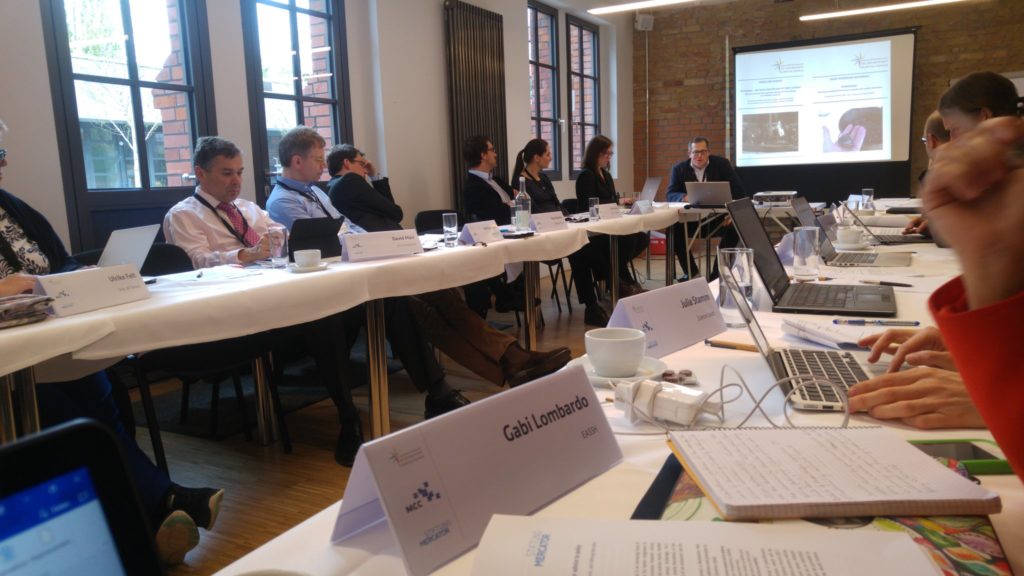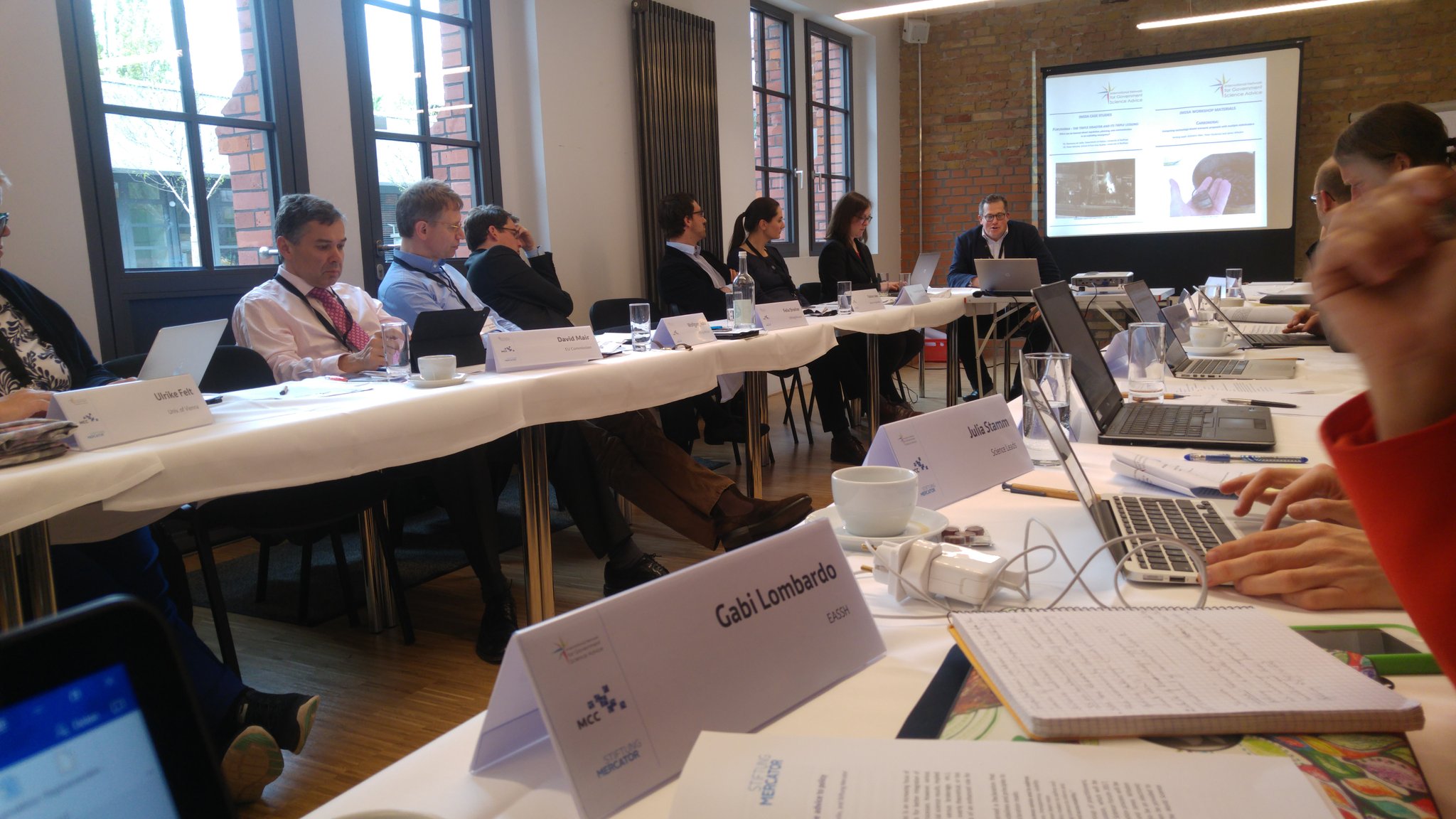Principles and guidelines for social science advice to policy – Berlin, Germany – April 2017
An expert workshop jointly organised by INGSA, MCC Berlin, and Stiftung Mercator
The role of the social sciences in public policy processes is an increasing focus of academic and science policy debates, with regular calls for better integration of social science evidence and expertise in policy advice processes. However, various challenges persist, including the societal relevance of social science results, implied value judgements and legitimacy issues (advocacy versus brokerage, etc.), complexity and uncertainty, and sometimes inconclusive, overly theoretical, or too specific results. So reflecting on the prospects and pitfalls of an enhanced role for social science in policy advice is crucial and timely.
In November 2015, the World Science Forum (WSF) endorsed a Declaration that includes, for the first time, a specific request that a set of guidelines and principles to underpin science advice be developed. To meet this request, INGSA has set up a small working group of practitioners, ethicists, legal and STS scholars to develop a draft for discussion, which will be consulted on widely before seeking endorsement at the World Science Forum 2017, to draw on a diversity of views. The development and consultation process is co-chaired by Dan Sarewitz (Arizona State University, USA) and James Wilsdon (University of Sheffield and INGSA vice-chair, UK).
As a contribution to this process, INGSA, MCC Berlin and Stiftung Mercator co-hosted an expert workshop on 25 April 2017 in Berlin with 24 participants (practitioners of social science policy advice, policy-makers, social science funders, STS/observers, etc.), mainly from Europe. This workshop provided an excellent opportunity to reflect on social science policy advice, and particularly focused on the contribution that the social sciences can make to the new principles and guidelines for scientific advice to policymaking – a first version of which was released in September 2016 in Brussels at INGSA’s 2nd international conference, in partnership with the European Commission.



